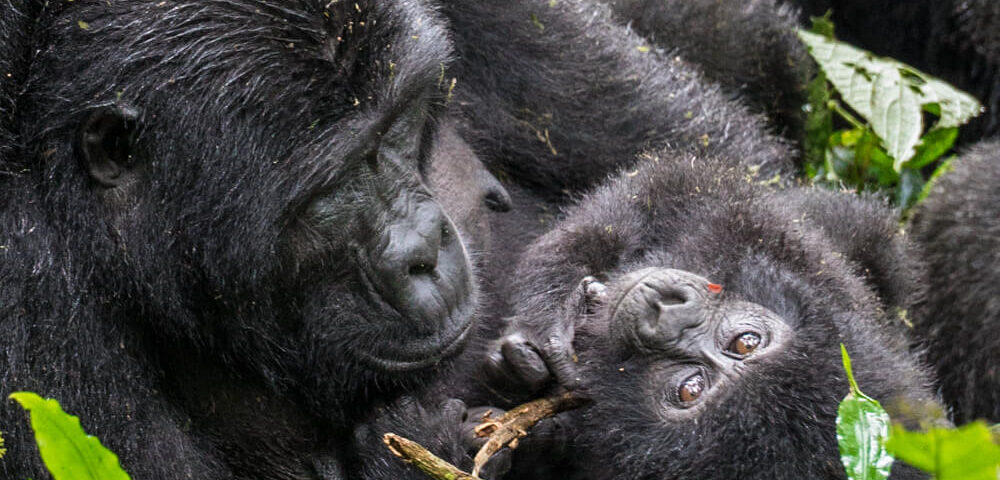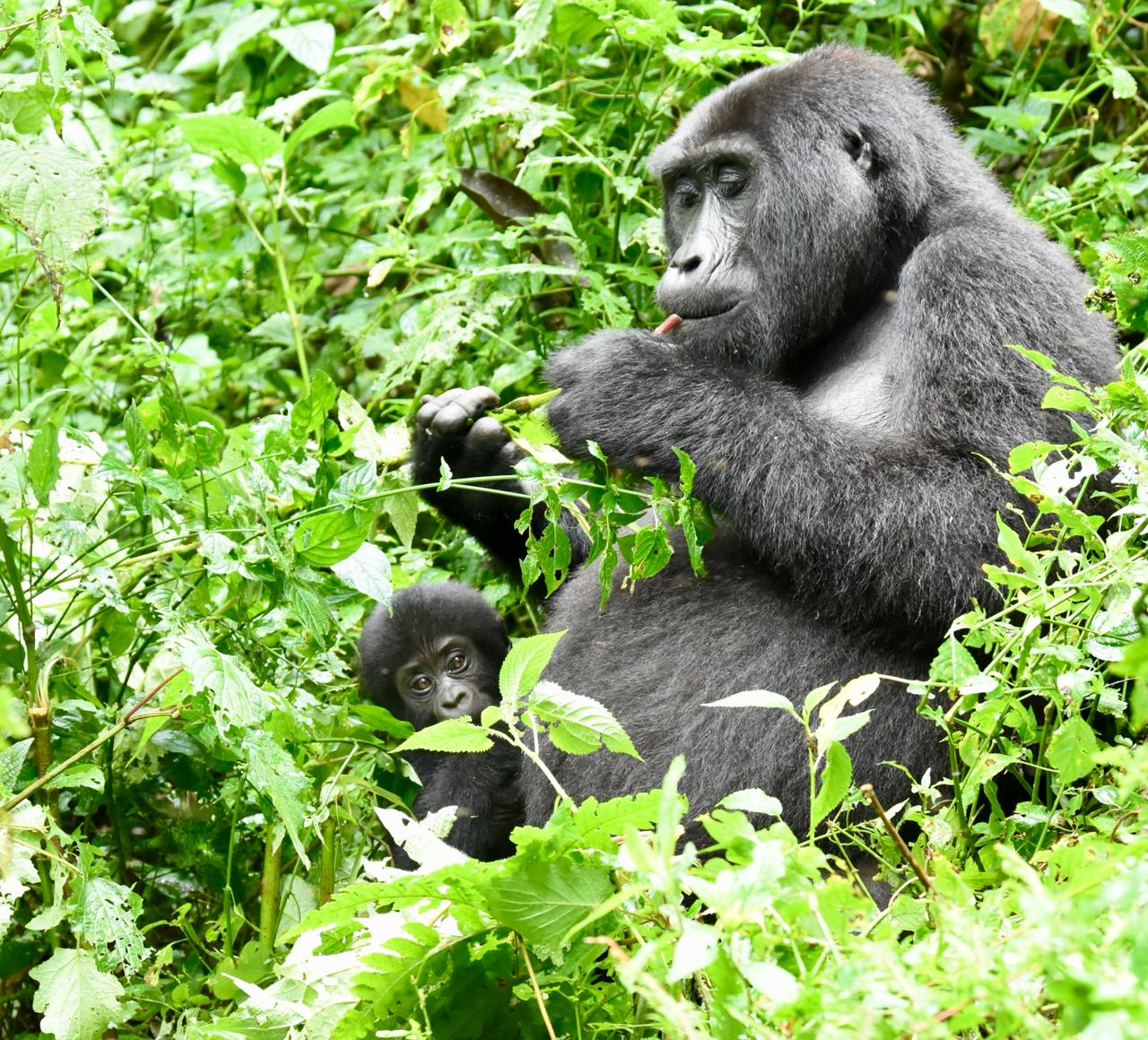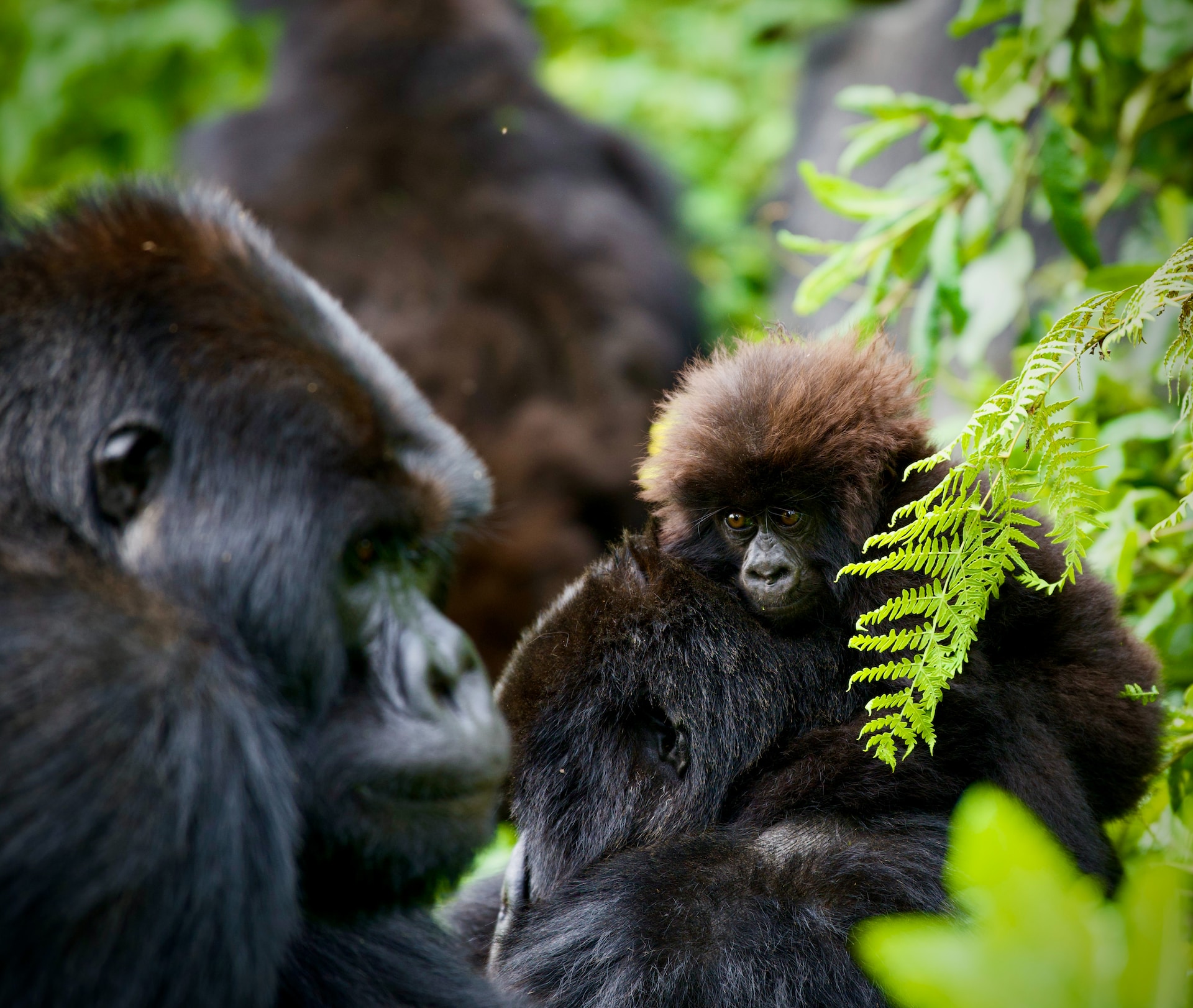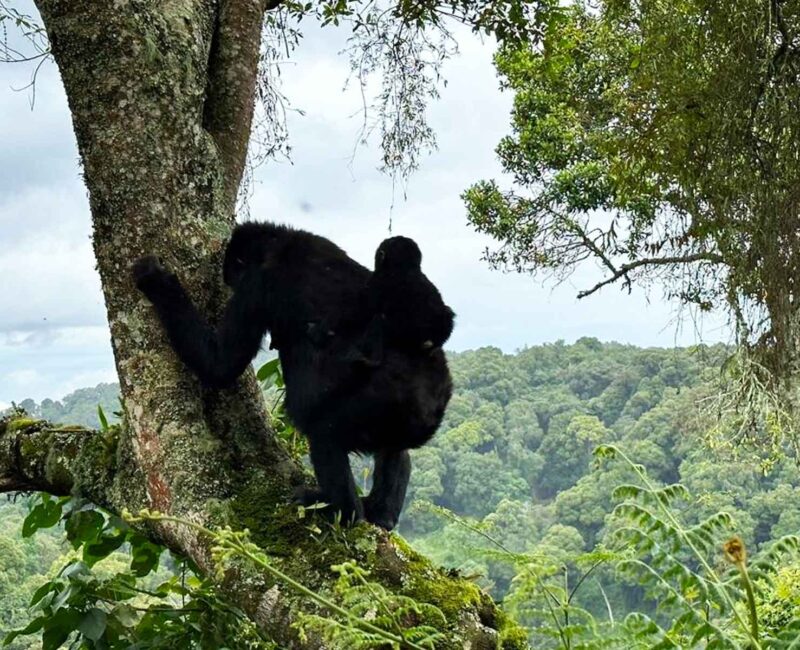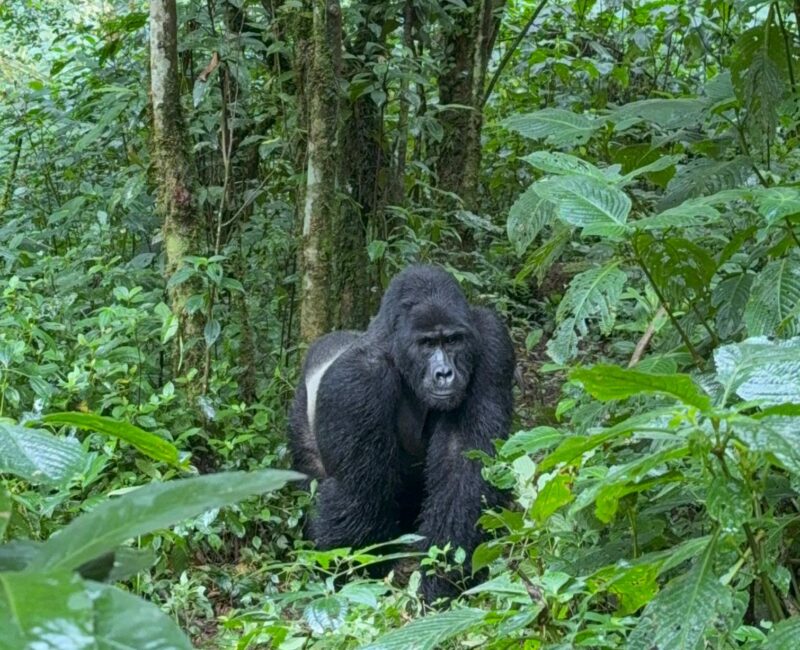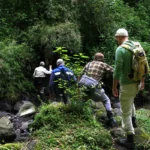
Best Family Gorilla Trekking in Uganda
September 18, 2025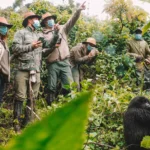
Group Gorilla Trekking
September 23, 2025Minimum Age Limit for Gorilla Trekking in Uganda
The Minimum Age Limit for Gorilla Trekking in Uganda is an important regulation that protects both the safety of trekkers and the survival of the endangered mountain gorillas. Gorilla trekking is one of the most unforgettable safari adventures and Uganda is among the very best destinations to experience it. Families, solo travelers and adventure seekers all dream of trekking into the misty forests of Bwindi Impenetrable National Park and Mgahinga Gorilla National Park to encounter gorillas in their natural home. However, the Uganda Wildlife Authority (UWA) enforces clear rules to ensure both conservation and visitor safety.
The Minimum Age Limit for Gorilla Trekking in Uganda is set at 15 years. Children younger than this are not normally allowed to participate though rare exceptions are sometimes made for 14-year-olds who meet certain maturity and physical fitness requirements. This regulation is not meant to exclude families but to safeguard the gorillas from exposure to human diseases and to protect young trekkers from the physical challenges of navigating dense forests.
For families planning a Uganda Gorilla Safari, understanding this rule is crucial. Parents with younger children should also know about exciting alternative activities that can enrich their holiday while older family members trek.
Why the Minimum Age Limit is Set at 15 Years
The minimum age limit exists primarily for two reasons, gorilla health and visitor safety. Mountain gorillas are extremely vulnerable to human illnesses such as colds and influenza. What may be a minor sickness in humans can be devastating for gorillas. Their immune systems cannot handle many human diseases. Children below 15 years are statistically more prone to carry and spread such infections increasing the risk of transmitting these illnesses to the gorillas.
In addition, trekking conditions in Bwindi and Mgahinga are demanding. The trails are steep, muddy and often slippery requiring endurance and emotional maturity. The UWA determined that the minimum age limit should balance conservation priorities with the practical demands of trekking. Children under 15 are often less able to cope with hours of hiking through challenging terrain which could slow down groups or lead to safety incidents.
This regulation therefore ensures that every participant is both physically and emotionally capable of meeting the challenge while also safeguarding gorilla populations. It is one of the reasons Uganda’s trekking system is recognized globally as both responsible and sustainable. For families planning Uganda Gorilla Safaris, this age limit becomes an important factor in designing itineraries.
Can a 14-Year-Old Join Gorilla Trekking in Uganda
Many parents planning a Uganda Safari Holiday with teenagers often ask whether a 14-year-old can join a gorilla trek. While the official minimum age limit is 15 years, exceptions are sometimes granted by the UWA. A mature and physically fit 14-year-old may be considered eligible if the parent or guardian signs a waiver taking full responsibility for the child.
The decision to allow such an exception rests with park authorities, and it is not guaranteed. In many cases, the warden may assign the group to a gorilla family closer to the starting point. This is to make the trek less demanding for the younger participant. Porters may also be arranged to assist with carrying belongings or even provide sedan chairs for those who struggle with the terrain.
Families considering this option should consult a licensed Uganda tour operator early in their planning process. While flexibility exists, it is important to respect that the rule protects gorillas as much as it ensures trekkers’ safety. If granted, the experience still offers the same magic as standard treks, with the added satisfaction of knowing your child successfully completed one of the world’s most iconic adventures in Uganda Tours.
Alternatives for Children Under the Minimum Age Limit for Gorilla Trekking in Uganda
Not every family member may be old enough to trek. This does not mean younger children miss out on the adventure. Around Bwindi Impenetrable and Mgahinga Gorilla families can explore a wide variety of cultural, community and nature-based activities that enrich a Uganda Wildlife Safari.
In Buhoma, children can enjoy village walks that include craft-making lessons, visits to local schools, and storytelling sessions with elders. Families can also explore the Batwa Trail, where guides from the Batwa community share their traditional knowledge of forest life, hunting, and herbal medicine. These experiences offer younger children a safe, educational, and fun way to engage with Uganda’s culture while older siblings trek gorillas.
At Lake Bunyonyi, which lies near Bwindi, families can relax together through canoe rides, birdwatching, or swimming in safe, bilharzia-free waters. Kibale Forest, another prime safari destination, offers family-friendly activities like nature walks and birdwatching. This means that even if children cannot participate in gorilla trekking, families can still create a memorable Uganda Safari Holiday together.
The minimum age limit therefore becomes a guideline for designing well-balanced itineraries rather than a barrier. Parents can craft family-friendly trips that combine gorilla trekking with cultural immersion, wildlife safaris, and lakeside relaxation.
Practical Considerations When Planning Around the Minimum Age Limit
For families preparing a Uganda Gorilla Safari, understanding how the age limit influences logistics is essential. First, booking permits early is critical, especially during peak seasons from June to September and December to February. Since only a limited number of permits are available each day, families should secure theirs at least six months in advance.
Second, accommodation selection is key. Families with children under 15 should choose lodges that provide activities for younger guests. Some lodges around Bwindi and Mgahinga offer nature trails, cultural performances. And even childcare services ensuring that younger children are engaged while parents trek.
Third, families must prepare physically. For those eligible to trek, basic fitness is required to navigate steep rainforest trails. Hiring porters not only supports local communities but also makes the trek more manageable. Parents should also consider travel insurance that covers medical evacuation, as trekking takes place in remote areas.
By planning carefully around the minimum age limit, families can ensure their safari holiday is safe, rewarding and stress-free.
Combining Gorilla Trekking with Other Safaris After Considering the Minimum Age Limit
The minimum age limit often encourages families to diversify their itineraries by adding other safari experiences. Uganda is more than just gorillas, it is home to incredible savannah parks, dramatic landscapes, and cultural encounters.
Families can combine gorilla trekking with chimpanzee trekking in Kibale Forest, where children above 12 can participate. Queen Elizabeth National Park offers game drives. These feature elephants, buffalo, lions and hippos along with boat safaris on the Kazinga Channel. For families with younger children, Lake Mburo National Park provides walking safaris, horseback riding, and birdwatching in a safe and accessible environment.
By combining different parks, families ensure that every member finds something engaging, regardless of age. This flexibility is what makes Uganda one of the most attractive destinations for Uganda Wildlife Safaris.
Why the Minimum Age Limit for Gorilla Trekking in Uganda is Essential for Conservation and Safety
The age limit for Gorilla Trekking in Uganda is a crucial regulation that balances conservation priorities with visitor safety. By setting the limit at 15 years, the Uganda Wildlife Authority ensures that gorillas are shielded. From human illnesses while trekkers are mature enough to handle challenging forest terrain.
While exceptions exist for mature 14-year-olds, families should prepare for the possibility that younger children will not participate in treks. This does not diminish the value of a Uganda Safari Holiday. Instead, it encourages families to explore Uganda’s cultural richness, wildlife diversity, and natural beauty beyond gorilla encounters.
By respecting this rule and planning around it, families not only safeguard gorillas but also enrich their travel experiences. The Age Limit ultimately ensures that this extraordinary adventure remains sustainable for generations. Allowing families to experience the wonder of mountain gorillas while contributing to their survival.

